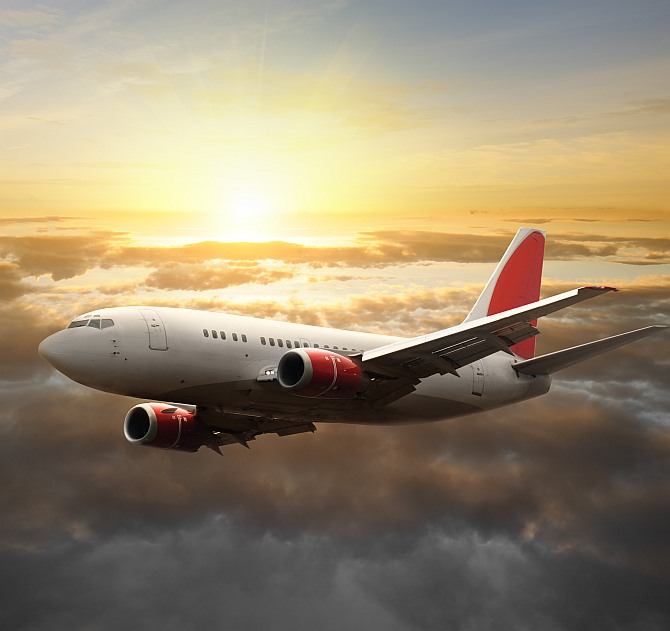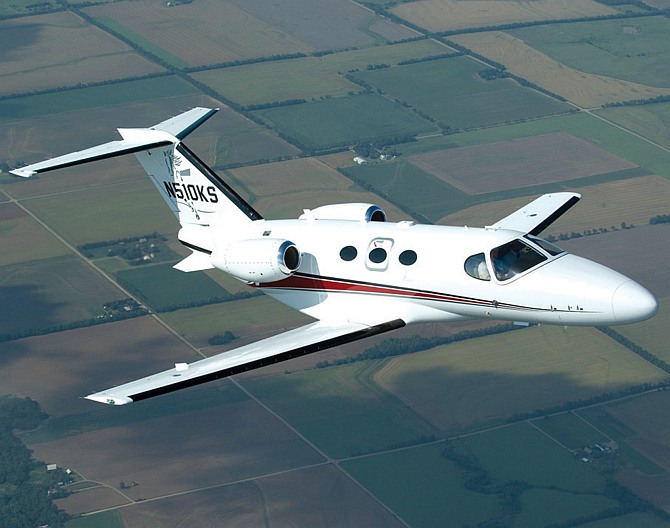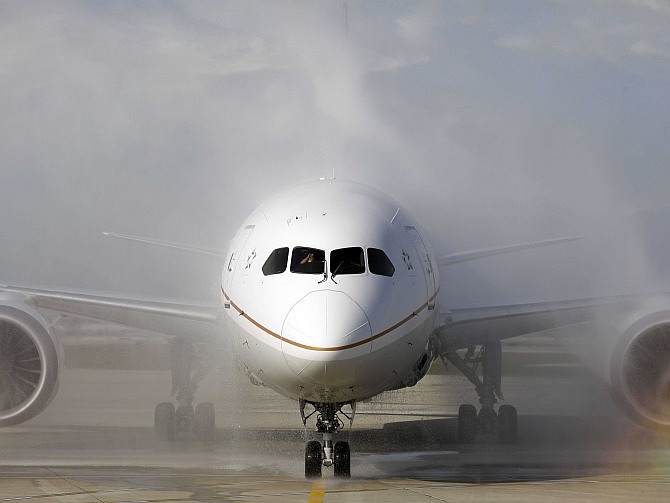 | « Back to article | Print this article |
India's skies are perilously unsafe!
The lack of coordination between the military intelligence and officials handling civilian aircrafts has ensured that serious cases involving airspace violation are never investigated
Vicky Nanjappa / Rediff.com reports
The ripples of the tragic shooting down of Malaysia Airlines flight 17 over Donetsk in conflict-struck Ukraine are being felt in India.
Official reports of nearly 30 violations of Indian airspace in the last three years have forced many experts to ask, “How safe are our skies?”
Intercepted conversations of terror groups often reveal their intention to carry out an aerial attack on vital installations in the country. Yet intelligence agencies have dismissed these as merely imaginative. Or are they?
According to experts, the fact that they (terror operatives) are thinking on these lines and that the world has since seen the shooting down of a plane and the 9/11 attack on United States, makes the entire issue a cause for concern.
Click NEXT to read further...
India's skies are perilously unsafe!
India has a lot to do on this front. There is a lack of coordination between the military intelligence and the officials handling civilian aircrafts.
There is no central command where the intelligence is gathered, analysed and shared.
The lack of coordination has ensured that cases of airspace violations are never investigated.
The mindset is pretty laid back, an official pointed out, adding that those handling this department are content that nothing catastrophic has happened and hence continue to ignore the problem.
A paper by the Institute of Peace and Conflict Studies has stated that India’s implementation of safety measures is not up to the mark. So much so that aircraft can fly around a vital installation like the Bhabha Atomic Research Centre.
Please click NEXT to read further...
India's skies are perilously unsafe!
Some Indian aviation experts blame the red-tape. An instance of this was evident during the recently-held Commonwealth Games in New Delhi.
Enough information was passed on by various agencies suggesting the possibility of an aerial attack. This had placed the Indian Air Force on guard no doubt, but then no proper brief was given as to when and why action should be taken in the event of an air space violation.
India’s poor record of aviation safety led to the downgrading of its safety rankings.
The US Federal Aviation Administration downgraded India’s safety ranking placing it along with countries such as Bangladesh, Barbados and Ghana. The reason? The Directorate General of Civil Aviation was horribly understaffed, especially technical.
Putting out a lame excuse, the then United Progressive Alliance government had said that the US move was in retaliation to the Manmohan Singh administration’s tough stance in the Devyani Khobragade case.
The US assigned India to Category 2 rating under its International Aviation Safety Assessment programme, based on a recent reassessment of the country’s civil aviation authority.
While being in Category 2 allowed Indian carriers to continue existing service to the US, but prevented them from establishing new service to that country.
Please click NEXT to read further...
India's skies are perilously unsafe!
Today, India realises the importance of this downgrade. It has been working along with The Wicks Group (Experts who help frame aviation guidelines for the DGCA and other agencies around the world), to identify and sort out the security issues.
India also has to deal with the threat posed by terror groups looking to increase their capabilities.
Senior officials told rediff.com that Pakistan army-backed groups like the Lashkar-e-Tayiba and the Taliban are capable of shooting down aircrafts.
Although they may think several times before undertaking any such operation, it is still a possibility in a bid to achieve a spectacular attack, they added.



